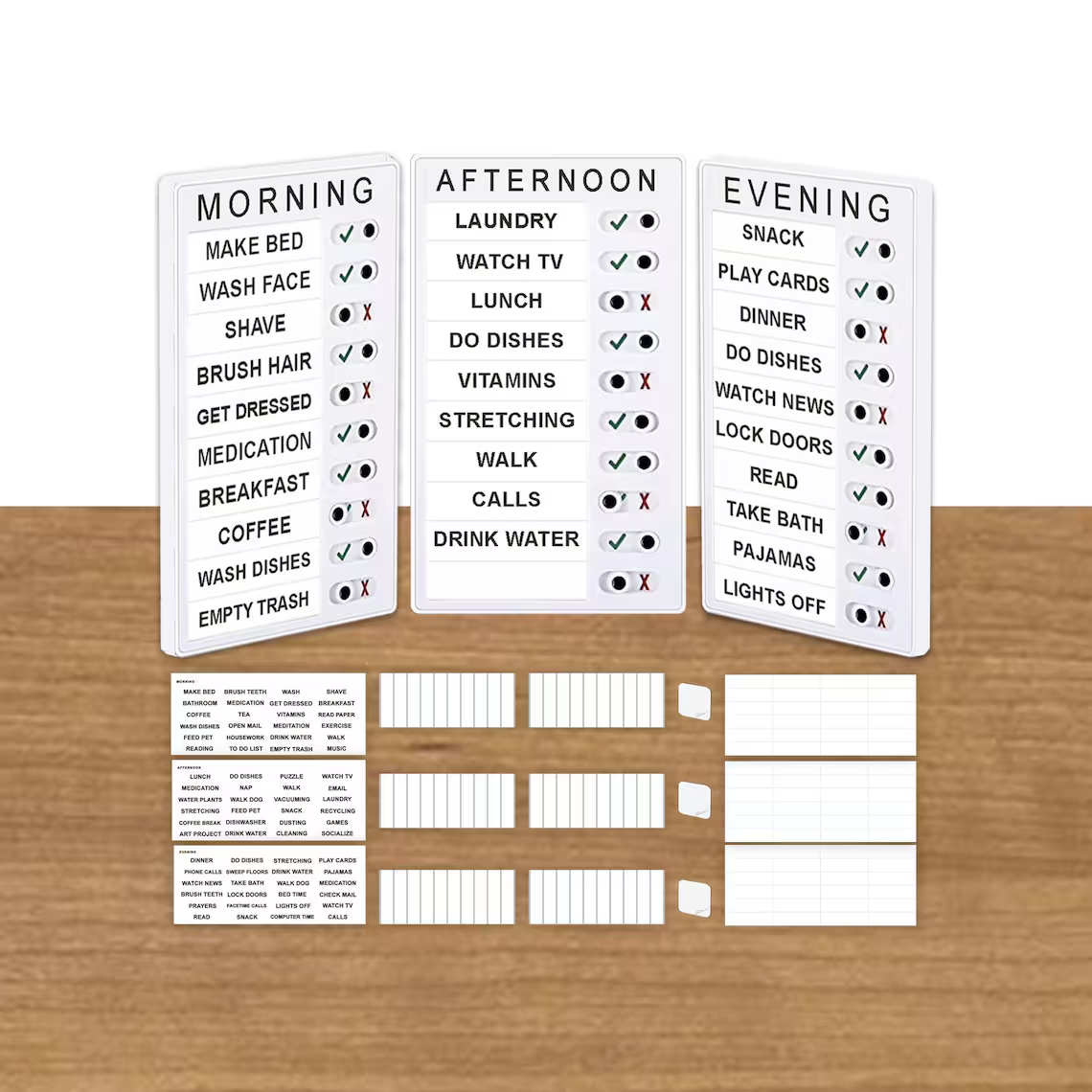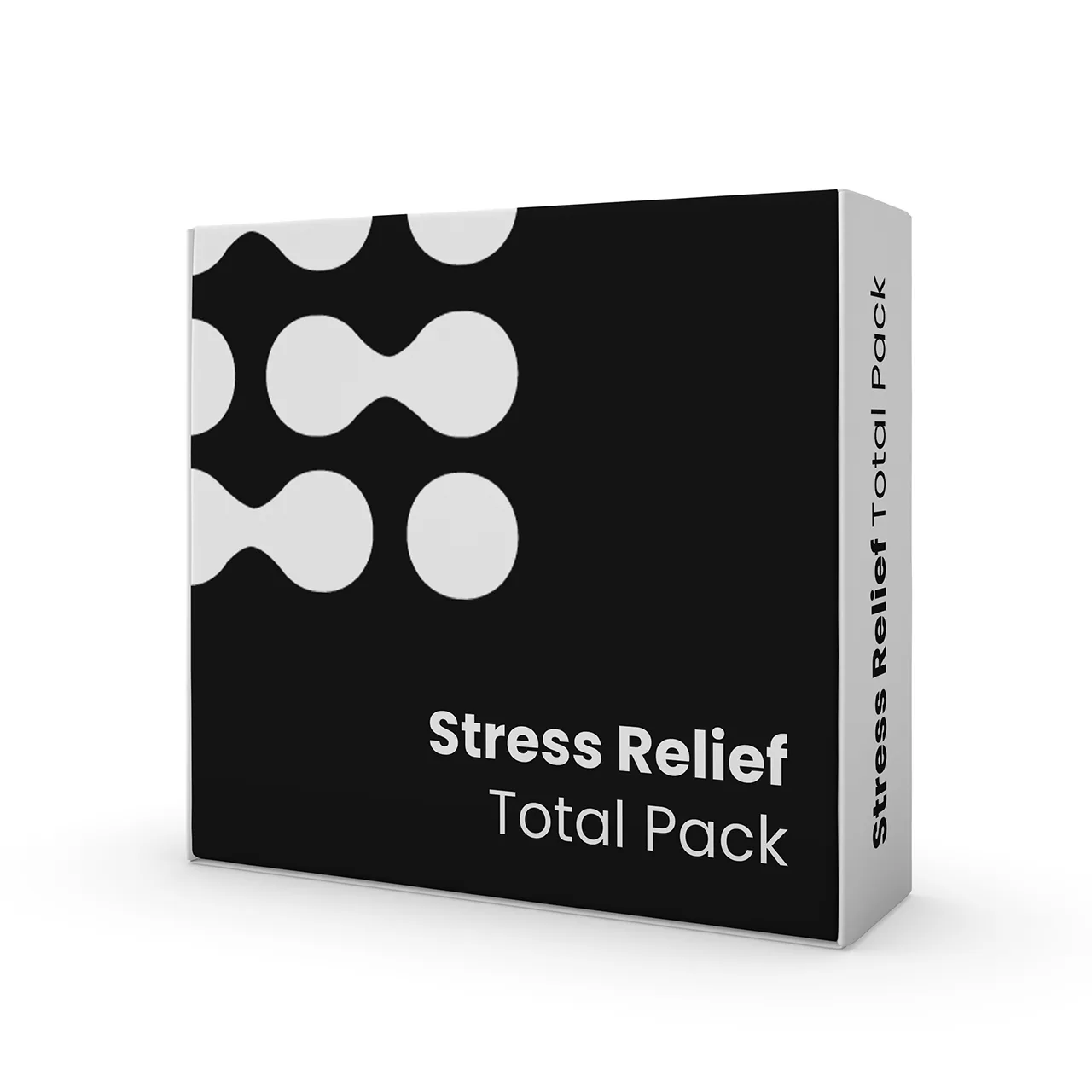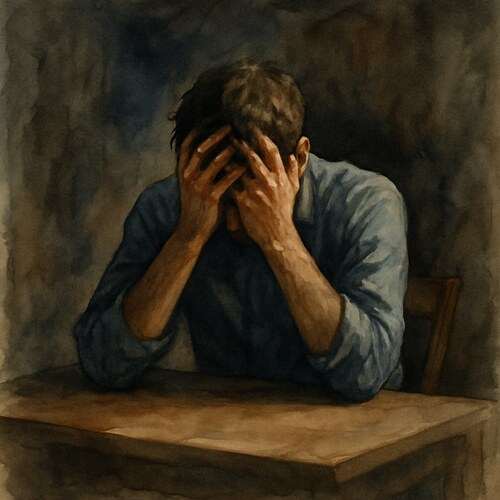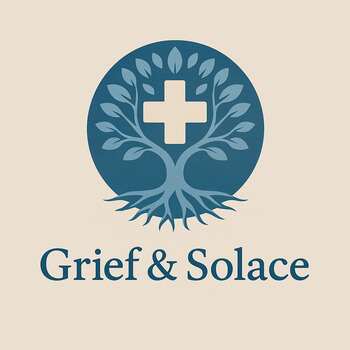Grieving Memory Loss: When the Past Slips Away Before Goodbye – Grief & Solace
Grief with memory loss unfolds in fragments, watching shared histories unravel while holding tighter to the pieces that still remain.
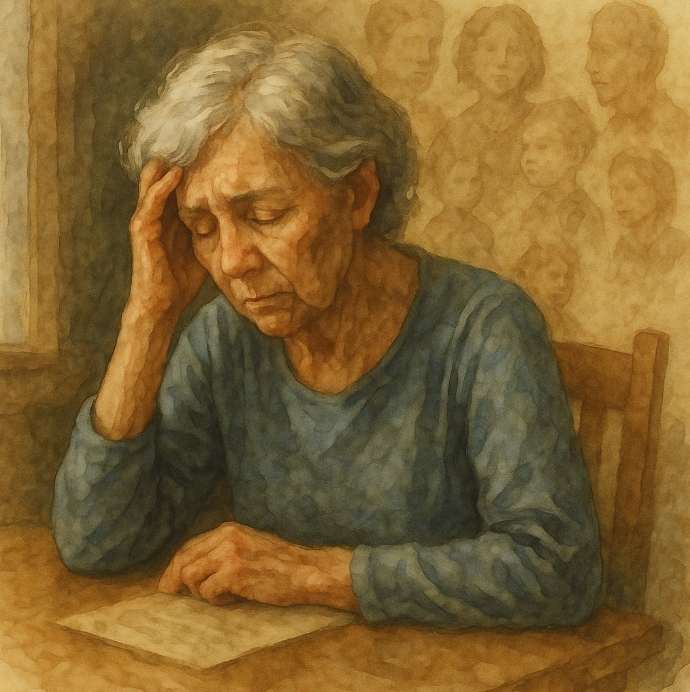
This post blends real grief with grounded knowledge. It isn’t clinical. It isn’t distant. It’s meant to sit beside you—not above you. The story you’ll read is meant to reflect what so many feel when living through or witnessing this condition: confusion, exhaustion, and quiet forms of courage.
If what you read feels familiar, please speak with your doctor. Your pain deserves more than silence.
She Forgot the Stories, but I Remember Them for Both of Us
At first, it was the small things. Misplaced glasses. Repeated questions. Those strange moments when she would trail off mid-sentence, staring at the wall as if it held the answer she had just lost…
We laughed it off, making jokes about “senior moments,” about needing more sleep, about how the noise of life made it hard to think clearly.
But the forgetting grew louder. She called our granddaughter by my name. She put the milk in the pantry. She got lost driving home from the grocery store she had been visiting for twenty years.
🧠 Symptoms:
typical_age_related_changes:
– Occasionally forgetting names or appointments
– Misplacing items but finding them later
– Needing to make more lists or rely on reminders
– Mild word-finding difficulty
– Slight delays in recalling information
concerning_signs:
– Repeating the same questions often
– Using incorrect or misplaced words
– Getting lost in familiar places
– Struggling with familiar tasks (e.g., recipes)
– Misplacing items in strange places (e.g., wallet in freezer)
– Mood swings or unexplained behavioral changes
That’s when it stopped being funny. That’s when worry moved in and unpacked.
We visited a doctor, then another. There were tests, scans, and bloodwork. They told us it wasn’t dementia…not yet…but that something was changing.
Maybe it was mild cognitive impairment. Perhaps age-related decline. Or just one of those gray areas that medicine still struggles to define.
They emphasized that the cause mattered less than the plan: structure, routine, patience…and lots of it.
She cried the first time she couldn’t remember our anniversary. Not because she forgot the date, but because she felt the weight of having lost something important. It slipped away, and she couldn’t retrieve it.
I held her hand through the ache. I assured her it was okay, that I remembered, and that I always would. I would remember enough for both of us.
We adapted. Sticky notes adorned the mirror. Reminders filled the fridge. Stories were repeated like lullabies, as some memories need to be sung back to the heart.
She still laughs. She still dances when the right song plays. She still brightens at the sight of old photos—even if she doesn’t always recognize the faces within them.
Some days are harder. She gets quiet, frustrated, and ashamed.
And I remind her: Your memory is not your soul.
Who she is…her warmth, her strength, her stubborn love, doesn’t fade just because a few pathways in her mind have dimmed.
I carry her stories now, tucking them into the corners of our days. I whisper them back when she fears losing herself.
She gave me decades of memories, and it’s my honor to return them, one gentle retelling at a time.
Causes:
age_related:
– Normal brain aging with slowed retrieval but preserved function
neurodegenerative:
– Alzheimer’s disease
– Vascular dementia
– Frontotemporal dementia
– Lewy body dementia
– Mixed dementia (multiple pathologies)
reversible_causes:
– Medication side effects or interactions
– Minor head injuries
– Stress, anxiety, or depression
– Alcohol use disorder
– Vitamin B12 deficiency
– Hypothyroidism
– Sleep apnea
– Brain tumors or infections
mild_cognitive_impairment:
– A state of greater-than-expected cognitive decline for age
– Memory and/or thinking skills impaired but not disabling
– May remain stable, improve, or progress to dementia
– Individuals can still manage daily tasks and social life
Even when her memory wandered, her presence remained…and I followed it like a trail of breadcrumbs through the forest of forgetting.
📘 Diagnosis & Treatment
diagnosis:
– Clinical history and family input
– Question-and-answer cognitive tests
– Physical and neurological exams
– Blood tests (e.g., B12, thyroid)
– Imaging: CT or MRI for brain structure
– Referral to specialists: neurologist, geriatrician, psychologist
when to seek help:
– Memory issues disrupt work, relationships, or independence
– Sudden onset of memory problems
– Increased confusion or difficulty concentrating
– Noticeable changes in mood, personality, or behavior
benefits of early diagnosis:
– Rule out treatable causes
– Begin symptom management strategies
– Make informed decisions about care, legal, and financial matters
– Access to community resources (e.g., Alzheimer’s Association)
– Time to educate family and create support networks
I know this is heavy, and I understand that the road ahead may feel like a tangle of loss and unanswered questions. But please hear this: you are not broken because you are hurting; you are not weak because you are afraid. You are living through something real, and survival itself is a kind of grace. You are allowed to struggle, you are allowed to hope, and you are allowed to not have all the answers today. Whatever comes next, you do not face it empty-handed; you carry every moment of love that shaped you, and that will always be enough to keep going.
🎀 Gifts to help With Memory Loss
🏥 Everyday Comforts for Everyday Battles
Managing Memory Loss often means needing a little extra help.
Sometimes it’s about restoring dignity, ease, or simply getting through the day with less pain.
These carefully chosen tools aren’t just items; they’re small bridges back to living.
This section is about finding practical support, never shame.
Daily Memory Aid Whiteboard – A Wall to Catch the Thoughts That Won’t Stay
Memory loss turns basic routines into puzzles. This wall-mount whiteboard helps track daily meds, tasks, reminders, and names—without relying on fleeting recall. Clear. Rewritable. Simple to use and impossible to ignore. A gentle anchor for a mind that keeps drifting.
🌿 Paths to Healing Beyond the Map
Sometimes traditional medicine isn’t enough.
If you’re exploring gentle, alternative options to help with Memory Loss,
you might find comfort in plant-based compounds like **CBD or CBG**.
*This section is not medical advice, just a door left open.*
USA Medical Focus + Stress Total Pack – Support for the Brain That Can’t Hold What It Used To
Whether from age, illness, or injury, memory loss often arrives with stress, sleep issues, and mental fatigue. This Total Pack combines CBD, cognitive support herbs, and calming adaptogens to reduce fog and tension. It won’t restore memories. But it may help the mind rest without shame.
Need a Different Path Forward?
Every journey through grief looks different. Choose the next step that speaks to where you are now:
When You're Ready to Start Healing
Healing doesn’t mean forgetting.
It means finding small ways to carry your grief with strength and grace.
These are the stories, tools, and gentle steps to begin walking forward…at your own pace.
When You're Still in the Thick of It
Sometimes healing feels like a lie.
If you’re not ready to move on…if the pain still roars louder than the world wants to hear…this is the place where you’re allowed to feel it.
No sugarcoating. No pretending. Just truth.
When You're Holding on to Who’s Still Here
Grief reminds us to love louder.
If someone you love is still with you, this is your place to celebrate them, honor them, and create new memories while there’s still time.
Joy and sorrow can live side by side.

